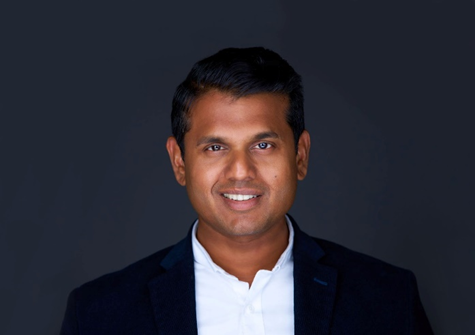Parenting is never an easy task. Ask any parent today about the biggest challenge, and the answer is often the same: gadget addiction whether it’s smartphones, online games, or social media.
We cannot overlook the impact of the ever-evolving internet and social media platforms, which have become integral to our daily lives, shaping how we communicate, consume information, and perceive the world. While the advantages are undeniable – connecting people across distances, providing entertainment, and even fostering social movements – the flipside of social media presents significant concerns. Its downsides, particularly concerning mental health, growing anxiety, low self-esteem, addictive behaviors, and overall well-being, cannot be ignored.
Children today face the phenomenon of the Lone Generation, where it is all about themselves in their make-believe virtual world, with screens as their main playground and the Internet as both their most faithful companion and greatest foe.
The Childhood Dilemma
Parents today are struggling to help their children enjoy their childhood as previous generations did. If we look back two decades, our childhood was a time of scraped knees, energetic games of hide- and- seek, and the warm ritual of bedtime stories. In contrast, today’s childhood is one of swipes, likes, and endless scrolling. Children today face the phenomenon of the Lone Generation, where it is all about themselves in their make-believe virtual world, with screens as their main playground and the Internet as both their most faithful companion and greatest foe. Parents are constantly seeking options, such as parental control apps for screen time management, to preserve and revive their children’s childhood by encouraging outdoor activities rather than allowing them to be consumed by technology.
The Balancing Act
It is undeniable that parents play a crucial role in guiding their children through the complexities and opportunities of the online world. While highlighting the adverse effects of social media, they must also avoid an overly pessimistic stance on technology. A research report from NCERT on the “Role of Parents in Navigating the Digital Age”, conducted on behalf of the Ministry of Electronics and Information Technology (MeitY), emphasizes that as technology permeates every aspect of our lives, families must extend their parenting approach beyond real-time interactions and adapt to the digital space, bridging the digital generation gap present in the current scenario.
It is also imperative that they address the challenges, risks, and opportunities brought about by the intervention of digital media in children’s lives. Striking a balance between supervising children’s online behavior and enabling them with the necessary online independence is essential.
Highlighting the Risks
Would it be correct to say that just doing the balancing act without practicality is essential? My answer would be a clear No!
Parents must make their children aware of various social stigmas, like the constant barrage of information and the pressure to maintain an online persona, which creates immense psychological stress for kids today. Parents need to encourage their children to avoid falling into the ‘comparison trap’ that can lead to serious mental health issues. The importance of self-worth is crucial, and this is promoted by spending more family time and engaging in regular parent conversations. On the psychological front, parents can help their kids love themselves and be confident in their achievements. Instant gratification is prevalent—a trend that social media platforms have masterfully engineered to be addictive, manipulating brain chemistry to keep users engaged for extended periods.
Protecting Digital Innocence
For many working parents, it might be tempting to hand a child a device in hopes of a quick reprieve, but good digital parenting is all about active engagement and participation. Parents can instil positive digital habits by adopting practices like setting screen time limits, using parental monitoring apps, and most importantly, leading by example. In addition, schools must adapt to this new reality by integrating digital literacy into the curriculum, thus enabling students to develop the necessary skills to access the online world safely. Encouraging outdoor activities, creativity, and critical thinking are foundational pillars of this learning process. Fortunately, there is a great diversity of safe applications, such as those that control screen time and can block access to risky content while providing good social boundaries for children.
Bringing Back the ‘Why’ in Our Lives
When children are growing up, they go through a phase of asking ‘why’ about practically everything. Parents need to rekindle that curiosity in their kids. However, with the advent of artificial intelligence, the importance of “why” seems to become redundant as we rely more on pre-formatted answers. To prepare our children for the future, we must focus on building fundamental human qualities. Children today must learn to value argument, critical thinking, discovery, and looking at life beyond their computer screens. Creativity stems from the human mind’s yearning for innovation, which cannot be fulfilled by solutions provided by artificial intelligence. We can empathize and possess emotional intelligence, which differentiates us from machines—the pillars of human behavior.
Read more: Why everything is a subscription now & what it means for your wallet
Technology is not inherently evil, but it is often over-analysed. We must teach our kids the ethical implications of new technologies, such as artificial intelligence and chatbots. We should encourage kids to understand how to stay safe while promoting and embracing the benefits of AI. Parents also must recognize the importance of protecting their children from online addictions. There is a need for parents to raise future leaders who understand the true meaning of power and accountability. This responsibility does not lie with AI, as technology can never be in charge. Our own minds are our greatest strength.
The Future Is Digital Warriors
Today, parents are raising digital warriors in every sense. Unlike in the past, the tension parents faced mostly revolved around exams and future career prospects. Today, the focus extends beyond these concerns to maintaining and developing healthy screen habits, avoiding addictions, boosting self-esteem, and ensuring physical activity at all costs.
We must acknowledge that social media is a double-edged sword. It has numerous benefits, but its negative effects cannot be overlooked. Nevertheless, there is nothing our human minds cannot achieve—evidenced by the recent NASA astronauts who embarked on an 8-day expedition yet returned to Earth after 286 days—this illustrates humanity’s perseverance and mental strength. It is time we reclaim control and foster a healthier relationship with technology. Ultimately, social media should serve as a tool for connection, not a source of distress.

Guest contributor Sasi Naga is the Founder & Chairman of Parent Geenee, India’s first location-based parental control app. Any opinions expressed in this article are strictly those of the author.












